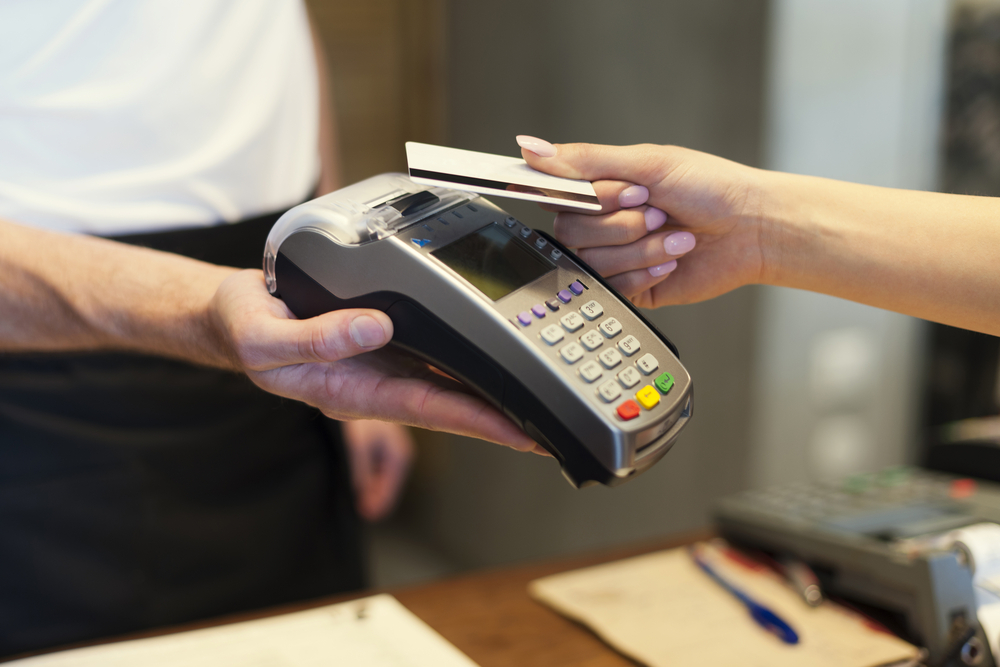Credit Cards & Loans
Why contactless can leave you counting the cost of your holiday

It may be quick and convenient, but using your debit card for contactless transactions – particularly for small amounts overseas – can be an expensive way to pay for goods and services.
Holidaymakers generally have four ways to spend overseas: debit cards, credit cards, prepaid cards and cash.
As with anything, there are advantages and disadvantages with each method. But according to independent financial information business, Defaqto, holidaymakers heading to Europe could be way off budget using their contactless debit cards.
It revealed that a daily €5 breakfast consisting of coffee and a croissant over a fortnight could end up costing a whopping £21 in addition to the €70 spent on your breakfast.
This is because typically when you pay by card or withdraw cash from an ATM abroad, almost all banks charge a fee to convert the transaction from euros to pounds.
Plus, the fee charged by banks for currency conversion is slightly higher than that charged by high street currency sellers, such as Thomas Cook, Sainsbury’s or Tesco. And some providers charge an additional fee for paying by debit card, or taking cash from an ATM.
The Defaqto research revealed that while debit card payments are convenient, only four current account debit cards can be used for purchases without any fees at all (paying for items or services in shops or restaurants, for example).
Of these four accounts, only one is widely available and free of charge (Metro Bank); while two (Monzo and Starling Bank) are mobile app based only.
Under half of all accounts (44%) don’t charge a fee for using a debit card for purchases.
Cheaper holiday spending
Surprisingly, the most cost-effective way is often to use a credit card, Defaqto said. It said they can be as cheap as cash and by using them overseas, holidaymakers are afforded extra consumer protection via the Section 75 rule on purchases costing between £100 and £30,000.
An evening meal costing €25 could cost travellers between £0.31 and £0.66 when using their credit card. In comparison, the same payment using a debit card could cost between £0.44 and £1.85.
The business revealed that one in eight cards don’t charge a fee for spending in Europe, such as B, Halifax and Virgin Money.
But, avoid withdrawing cash from an ATM using your credit card as this attracts an additional cash withdrawal fee, and interest accumulates from the day the money is withdrawn.
What about pre-paid cards?
These allow you to load foreign currency of your choice so you can only ever spend the balance on the card, though you can top-up when you’re on the go.
Some pre-paid cards, such as Revolut and Loot, are virtually free to use abroad. Most pre-paid cards though have high fees, or other catches such as loading or renewal fees, and some (e.g. Asda) have very expensive non-sterling exchange fees.
Defaqto said that while these can be the cheapest way to spend abroad, travellers need to choose very carefully as many have poor exchange rates. It compared 92 sterling or euro-denominated pre-paid cards and found that only six have no fees for adding money, no service charge and no renewal or dormancy fees. This includes ICE, Loot and Revolut.
Another point to note is that many cards can’t be used for car hire, and customers might also have difficulties at petrol stations, where payments often can’t be pre-authorised.
Brian Brown, head of insight at Defaqto, said: “For anyone going away this summer, it’s well worth looking into your holiday money in advance to escape unnecessary fees, charges and poor exchange rates. There are a number of options available from credit and debit cards to pre-paid cards and cash, each with its own benefits.
“By taking a little time and care to research the market and the options available, travellers to Europe this summer could make their holiday spending go even further. A little knowledge, such as understanding that using a credit card instead of a debit card to buy your morning coffee could save you £s, so it’s worth doing your homework well before you leave.”